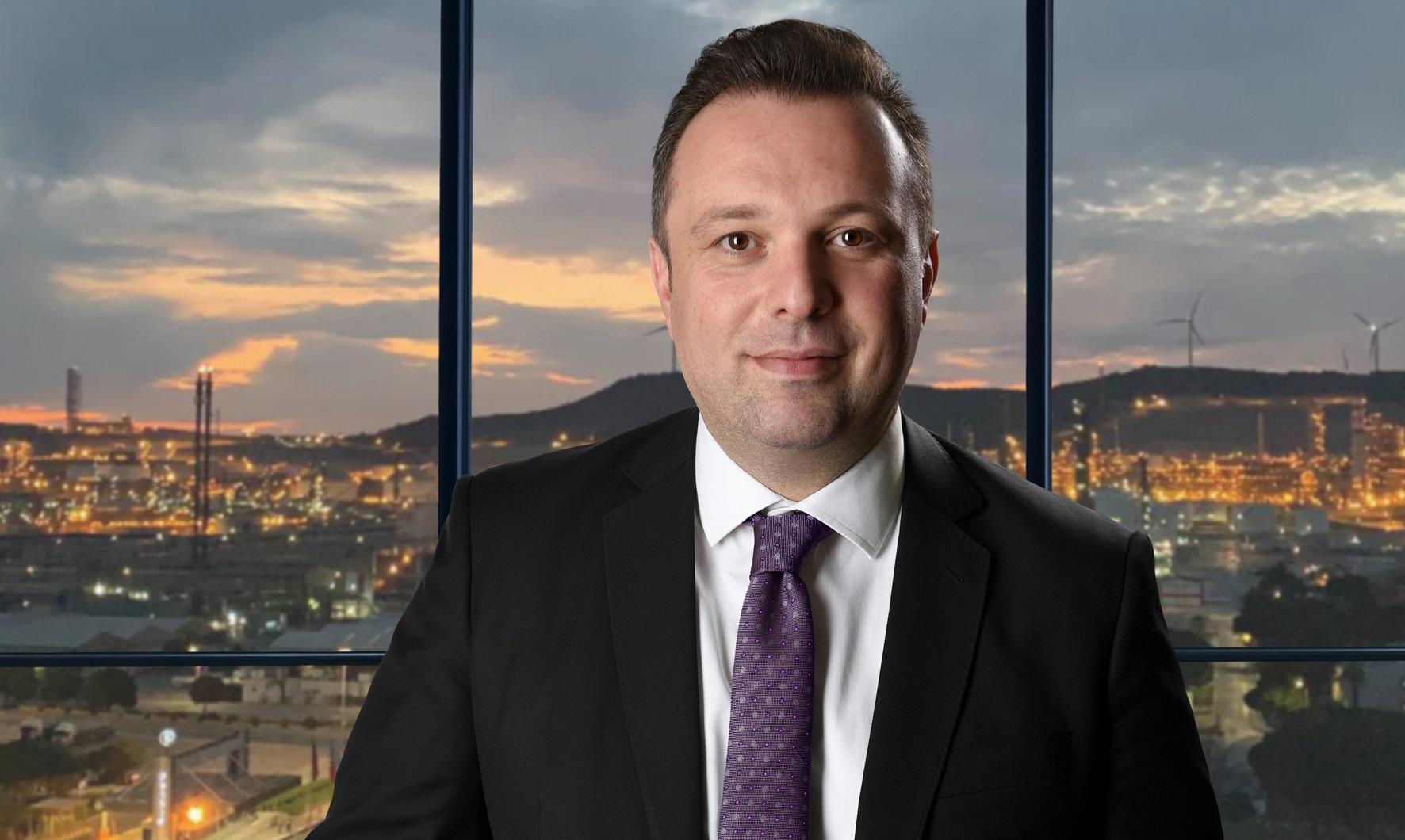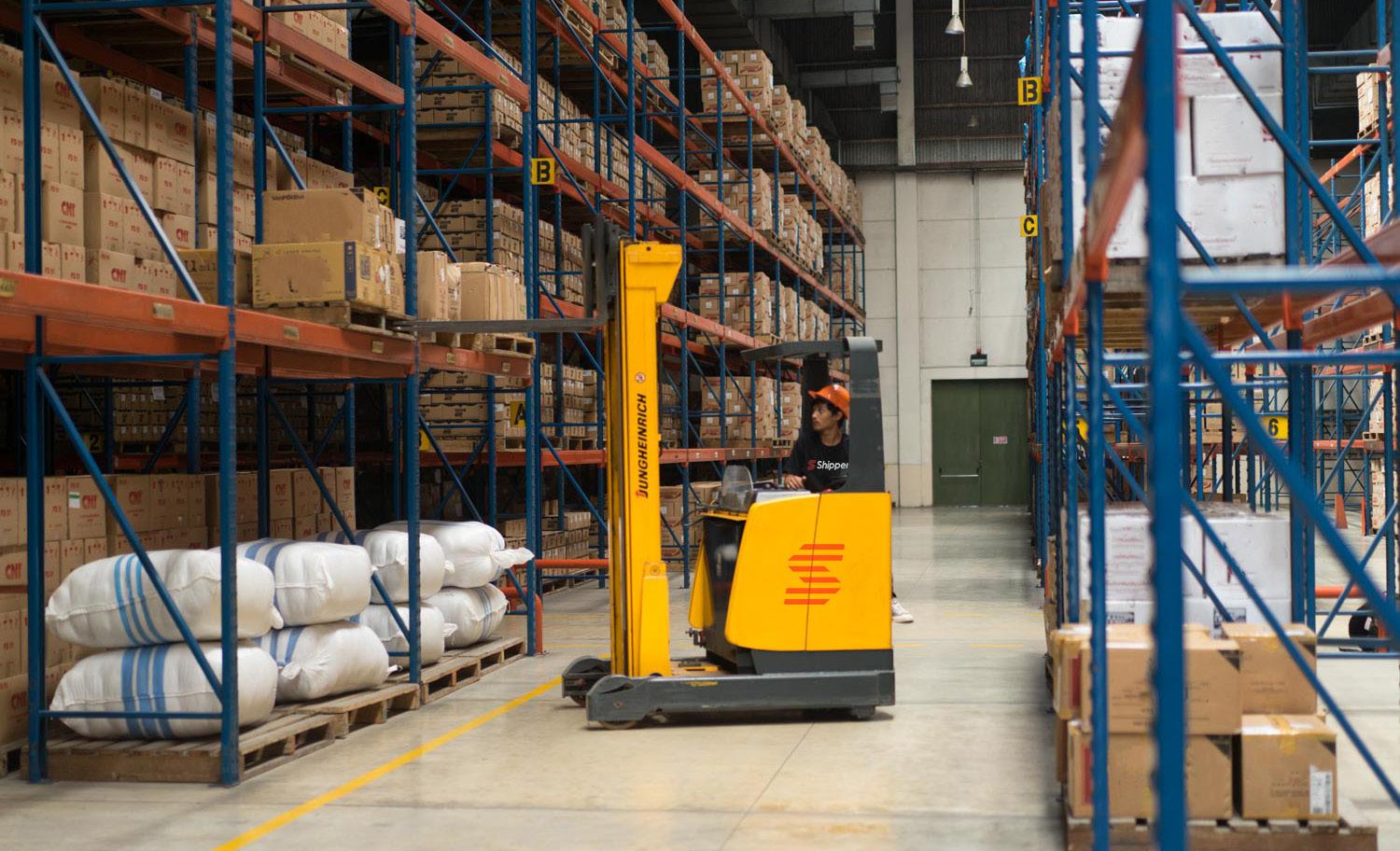
12 minute read
Petkim ‘Best Working Capital Management'
Remarkable performance earns Petkim
SOCAR Turkey was recognised in two categories
at this year’s International Finance Awards. The company was the recipient of the ‘Best Working Capital Management Award’ and Betül Sarıkaya, Chief Financial Officer (CFO) at SOCAR Turkey Gas Business Unit, won in the ‘Best Woman FCO Award’ category.
Development in line with budget targets continued
Uninterrupted production amid the pandemic
While the pandemic has brought major global disruption, it has also led to declines in production in almost all major sectors. The petrochemical industry was no exception. Worldwide, many facilities had to either halt or cut down production due to the pandemic but Petkim managed to continue production without interruption during this challenging period. The most important factor that has helped Petkim continue its production uninterruptedly has been its infrastructure that allows integrated operation with the STAR Refinery which is another subsidiary of SOCAR Turkey.
As Turkey’s first and only integrated petrochemical company, Petkim continued supplying high-quality naphtha, which is its main raw material, directly from STAR Refinery at a time when the supply of petrochemical products slowed down globally. Petkim continued its operations seamlessly during a challenging period, ensuring a balanced management of the fluctuations in global prices with effective working capital management. During this period, global raw material prices fell behind the increases in product prices, allowing for a reduction in net financial costs to help maintain development in line with budget targets.
The on-point steps taken during this period of successful management of financial operations provided Petkim with competitive advantages in the global petrochemicals market.
Petkim’s strong performance reflected in the figures
The continuity achieved in production during the pandemic was also reflected in Petkim’s figures for the first quarter of 2021. Capacity utilisation stood at a high level of 92 percent in the first quarter of the
Petkim was recognised for the successful financial performance during the challenging pandemic period
year at Petkim, while total revenues reached TRY 5billion. During the period, Petkim also successfully met its planned sales targets and achieved TRY892 million in net profits. During this period, EBITDA (operational profits) figures grew by 56 percent quarter-over-quarter. Throughout the pandemic, Petkim continued its operations ceaselessly while also allocating resources for new investments. In the first quarter, the amount of additional investments made for productivity growth also reached TRY131 million.
Despite the restrictions brought in by the pandemic, Petkim prioritised its debt payments with the goal of supporting financial sustainability for all stakeholders and demonstrated its strong financial structure with TRY478 million in net payments it made in the first quarter of 2021.
Integration successfully completed
The remarkable performance achieved by Petkim during such a challenging period was because of its successful integration with the STAR Refinery along with the practices that bolstered operational productivity with innovative solutions. Results obtained from digital transformation that predated the pandemic at Petkim and other SOCAR Turkey Group companies as well as the innovative practices rapidly adopted in operations boosted productivity and performance.
The speed and flexibility introduced in business processes by the structural steps taken and innovative practices also provided Petkim with a competitive edge in the global petrochemicals market. All these improvements, launched with an inclusive perspective everywhere from operational areas to administrative units were the factors that made a positive contribution in Petkim’s financial performance. Successful activities on a vast operational chain extending from supply and production to sales and marketing processes combined with an effective financial management to bring global awards to Petkim.
Awards received during challenging times mean even more
Expressing their pride with receiving two awards from International Finance, Elchin Ibadov, Head of Finance at SOCAR Turkey Refinery and Petrochemicals Business Unit & CFO of Petkim said, “It means even more that we received these awards during a challenging period for the entire world due to pandemic. As Turkey’s first and only integrated petrochemical facility, Petkim enjoyed the advantage of having the uninterrupted supply of high-quality petrochemical raw materials through its integrated operation with yet another SOCAR Turkey group company, STAR Refinery. This allowed Petkim to save considerably on logistics costs as well.
“Correct management of FX and interest rate risks as well as financial instruments, optimisation of operational costs and effective business capital management have allowed Petkim to achieve
extremely successful financial results. We are immensely pleased with the recognition in the Best Working Capital Management category of the performance posted in inventory, receivables, cash and debt management by Petkim, which boosted its operational profitability by 21 percent year-over-year to TRY1.9 billion.”

INDUSTRY IN CONVERSATION BUDI HANDOKO CHIEF OPERATING OFFICER, SHIPPER

IF CORRESPONDENT
Indonesia’s e-commerce market is one of the biggest in the world, but the logistics sector remains fragmented. To sustain the growth of its e-commerce sector, the logistics sector needs to embrace digitalisation. Since Indonesia is an archipelago, comprising more than 17000 islands, logistics still remains a key challenge in the region. However, the Indonesian freight and logistics market is expected to grow by a Compound Annual Growth Rate (CAGR) of 10.27 percent between 2020 and 2025. Co-founders Phil Opamuratawongse and Budi Handoko launched Shipper in 2017 which offers end-to-end logistics solutions ranging from warehousing, line haul, first mile, last mile, as well as cross border delivery. In the exclusive interview with International Finance, Shipper Chief Operating Officer (COO) Budi Handoko said that what Shipper brings to the table is efficiency. Indonesia’s logistics sector is still behind its neighboring countries, such as Malaysia, Thailand and Vietnam, in terms of the sector’s competitiveness and efficiencies.
In a 2018 report, World Bank mentioned that Indonesia’s Logistic Performance Index scored only 3.2 out of 6. Some of the major factors for such low rankings were lack of transportation infrastructure, bureaucracy and complicated regulations.
Several Southeast Asian e-commerce giants such as Tokopedia, Lazada, Shopee Indonesia and BukaLapak operate in the country, and the growing market means the demand for warehouses will increase along with volume. At the same time, the country’s internet penetration rate is also increasing. Given the opportunities in the Indonesian e-commerce market, many foreign investors are channeling their money into the e-commerce logistics
LOGISTICS INDONESIA E-COMMERCE DELIVERY

sector. Investors understand there is money to be made and they have identified the right avenue.
Shipper, which has a presence in presence in 70 cities across Indonesia, around 2,500 logistics providers and around 50 fulfillment centers, raised $63 million in its Series B round which saw participation from investors such as DST Global partners and Sequoia Capital India. According to Budi Handoko, Shipper will use the funds to expand its team as well as upgrade its tech capabilities. There is an opportunity for growth and development in the logistics sector in the country and one thing is very clear, as Budi Handoko pointed out, digital transformation is key for the logistics sector in Indonesia to evolve. While startups like Shipper are leading the charge, the logistics sector is set to mature but the overhaul will happen in the long run. There is a gap in the logistics market and it can be filled with digital transformation, which is key. In this exclusive interview Budi Handoko discusses the Indonesian logistics market, challenges ahead as well as the outlook of the logistics sector in Indonesia.
IF: Indonesia is one of the fastest-growing e-commerce markets in the world. However, the logistics sector in Indonesia is very fragmented. Do you see the logistics sector in Indonesia changing in the next couple of years?
Budi Handoko: Indonesia’s e-commerce GMV value is predicted to grow from $32 billion to $83 billion in 2025, therefore the headwinds are driving the need for more efficient logistics. The logistics sector needs to adapt and capitalise these huge opportunities and this is exactly what we want to contribute; supporting Indonesia’s growing digital economy in the logistic sector for the long run. In building Shipper, we want to build an adaptive digital ecosystem by powering commerce and its supply chain through technology and data. We are offering an integrated end-to-end logistics solution with our digital logistics platform and working together with numerous partners to inject more efficiency in the traditional supply chain. This will hopefully structure the unstructured world of logistics eventually.
What are the challenges that the Indonesian logistics sector needs to overcome to support its booming e-commerce industry?
The rapid growth of e-commerce has definitely created
INDUSTRY IN CONVERSATION BUDI HANDOKO CHIEF OPERATING OFFICER, SHIPPER
massive opportunities as well as challenges in the logistics world. E-commerce as an industry is actually, believe it or not, still in its very early stages in Indonesia if compared to other developed economies. I think the core issues at the top would be infrastructure connectivity, digital talents, and the fragmented players. To overcome these, we need to work together with the government, business players, as well as academia to facilitate an adaptive digital ecosystem to structure the unstructured world of logistics. As our aim is to offer end-to-end logistics solutions for businesses of all sizes, we are certain that the logistic sector in Indonesia needs to be more integrated, user friendly for the customers and systemically well-organized, by involving technology.
How can Shipper solve some of these problems?
Indonesia’s logistics costs remain the highest compared to other countries in the region, adding up to 40 percent more on top of a customer’s total purchase amount in tier-two and tier-three cities. To address some of the inefficiencies, Shipper’s data-driven, tech-enabled and asset-light approach to consolidating fragmentation in Indonesia’s logistics market has enabled us to build a readily scalable network in four years that would have taken other companies years to build. We have seen that the value for sellers using Shipper’s network has been compelling as their logistics costs can be reduced by 15 to 20 percent , time saved in managing logistics for their business, and by extension enabling SME sellers to deliver a better experience for their customers.
We can fulfill these benefits by offering end-to-end logistics solutions ranging from warehousing, line haul, first mile and last mile delivery, and cross border. We provide advantages in technology, speed, and flexible-customisable solutions. There were a lot of pain points for customers, which drove me to come up with a simple solution that can enable those customers to ‘free to choose’ any logistics services they need with a click of a button.
Shipper recently raised around $63 million in its Series B funding round? Do you plan to raise additional funds in the near future? Also, do you have plans to expand your business to other markets in Southeast Asia or beyond?
Our Series B financing comes less than a year after Shipper secured its Series A financing in June 2020 which will enable us to further invest in technology and significantly expand our logistics network. As our business continues to grow, as reflected in our investors' confidence through the funding rounds, additional funds will be essential. We are confident that we have a great future ahead of us and it is our hope that we will be able to bring our values and solutions to other SEA markets in the near future, and it is just a matter of time before we expand globally.
There are numerous logistics service providers in Indonesia operating at different capacities. What value proposition Shipper has to offer that differentiates it from its competitors?
Apart from the end-to-end solution for all sizes of business, our competitive advantages also include the speed and the flexibility of delivering customizable solutions to our partners and customers. I’m also happy to share with you that Shipper is backed by more than 1,900 talented employees who work hand-inhand to deliver success to our customers.
More importantly, collaboration is our passion. We are aggregating a vast network of logistics with our logistics partners in a win-win situation. Whether it is local or foreign logistics companies, we see them as potential partners which will unlock more business opportunities in the future.
Can you explain the benefits of Shipper’s API integration system to SMEs and MSMEs?
Different businesses have different needs and we are striving to provide an integrated and seamless logistics experience for all of them.
One of our values is that customers really come first, so I’m happy to let you know that we have happy
LOGISTICS INDONESIA E-COMMERCE DELIVERY

customers. Our SMEs customers are happy because we provide free pick-up services to their homes and make it easy for them to track and manage their inventory through our fulfilment centers. We have around 110,000 delivery orders processed per day. Those services are complemented by our API integration services whereby online sellers or e-commerce platforms can tap directly into Shipper’s logistics network in one click. It reduces cost and time to look for the best delivery services available in the market.
In your opinion, how vital is it for the logistics sector to embrace digital transformation?
In short, it is a must have for the logistics sector to embrace digital transformation. The Pandemic is one of the forcing factors for the digital transformation to be implemented in the logistics industry. It amplifies the “stay at home” economy during this difficult time. But nevertheless, a digital era has come, regardless of any situations. This has become our current, and future life. And driven by this e-commerce growth, Shipper is here to support Indonesia’s digital economy by playing a leading role in building highly digitalized logistics services.
What is the outlook of the logistics sector in Indonesia, especially e-commerce delivery?
If we use China as a benchmark, at the moment China’s e-commerce penetration rate is at 24 percent while Indonesia is at 6 percent. And in terms of parcel volume, China is at 170 million (~10 percent population) while Indonesia is at 5 million with a population around 240 million. Therefore Indonesia’s potential growth can be 6x and 4x respectively in terms of penetration rate and parcel volume compared to China. I believe that digital logistics platforms will play a very important role in the logistics industry for years ahead. It offers clients and partners to select the best logistics provider for their business needs, with very competitive advantages in technology, speed and flexible-customizable solutions.
editor@ifinancemag.com




